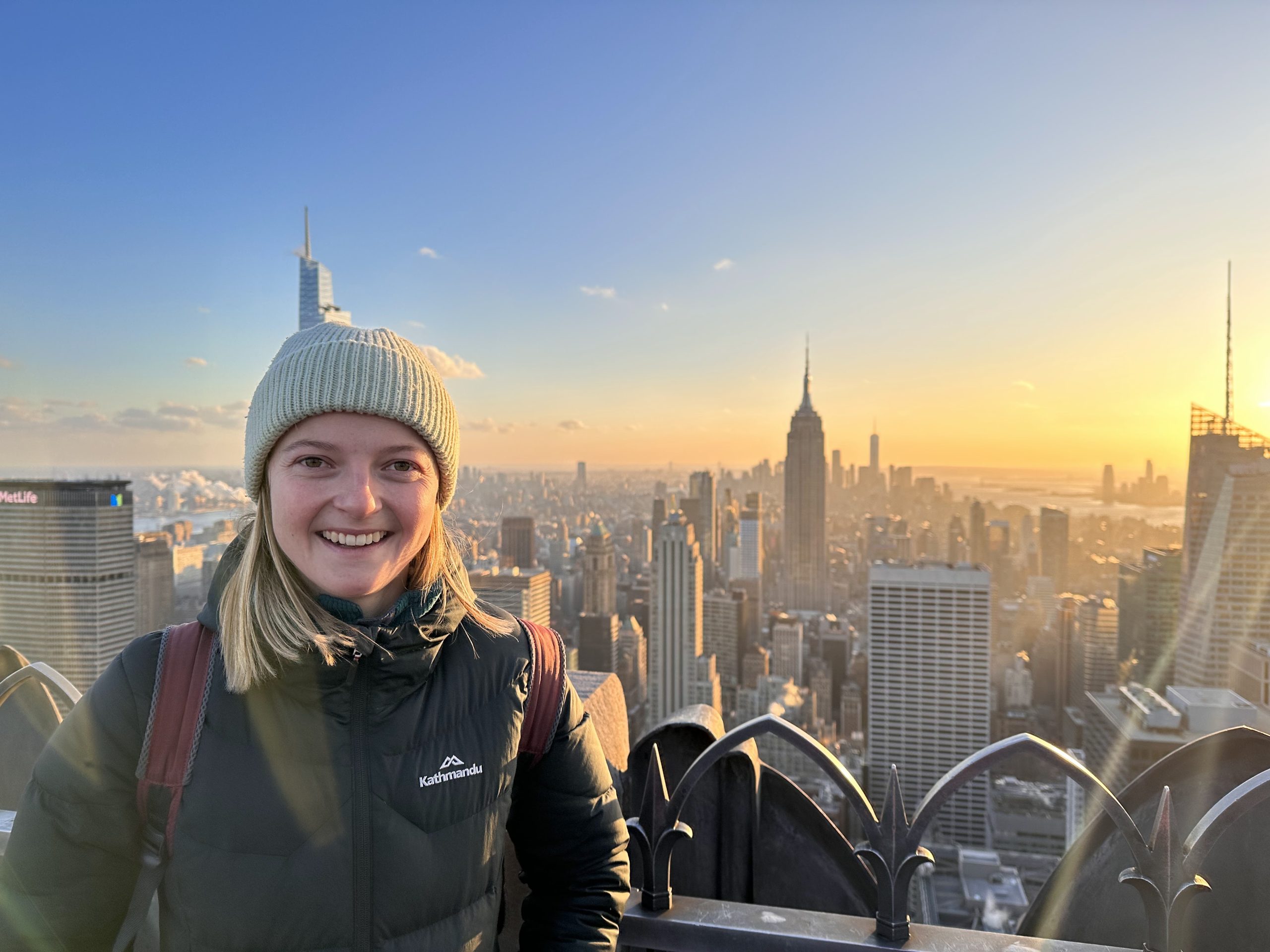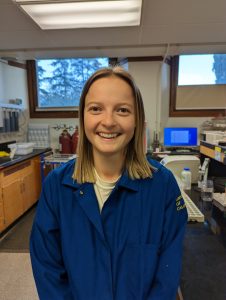After what felt like eons of applications, preparation, and planning, I arrived in the USA in April 2022, ready to embark on my Fulbright Scholarship at the world-renowned University of California, Berkeley. For nine months, I had the privilege of completing part of my PhD in the Agroecology lab, led by Assistant Professor Tim Bowles. The opportunity to live and study in the USA, made possible by the Fulbright Scholarship, was truly transformative, both professionally and personally.
Project and professional experiences
My project investigated the effect of soil management and variety on the productivity of dry farmed tomatoes. Dry farming is a method of growing crops without irrigation during a dry season, historically used by Indigenous groups and Mediterranean farmers, and now implemented in coastal regions of the western United States. In a 0.5 ha urban field site near campus, we grew five varieties of tomato without irrigation (or rain), from May to October. We selected three indeterminate varieties that included the current commercial standard, a similar variety which is untested in dry farming settings, and an heirloom with promising performance in water-limited production, as well as two determinate varieties that served as an arbuscular mycorrhizal (AM) fungi model. We aimed to:
- Determine if soil disturbance, specifically biointensive no-till, influenced tomato properties when dry farmed;
- Compare the plant physiology and fruit characteristics of the five dry farmed tomato varieties;
- Investigate the influence of AM fungi on dry farmed tomato productivity.
We found that soil disturbance such as no-till may not impact tomato yields or quality, nor affect plant water stress, at least in the small scale at which the practice and field trial was implemented. The current commercial standard had the greatest yield and marketability, as well as flavour. Tomato variety had a greater influence on fruit properties than soil disturbance, and AM fungi did not impact plants water stress or result in better fruit yields, although levels of root colonisation were very low. Although dry farming reduces yields, it produces tastier, more intensely flavoured fruits that are prized by consumers and chefs. The hundreds of kilograms of fruits produced were donated to food pantries around Berkeley, which was a great bonus of the research. With drought severity and frequency increasing in areas like California, methods of production that limit irrigation usage will become increasingly important. This research will contribute to the currently lacking peer-reviewed dry farming literature, providing options for farmers in water-limited climates or scenarios.

My time as a visiting researcher in the Agroecology Lab was an incredible learning experience that expanded my technical and research skills. Not only did I gain a wealth of knowledge in agroecology, but I also learned about social justice within Californian farming and land sovereignty. The project was particularly special because it allowed me to explore new avenues of interdisciplinary research in collaboration with a diverse group of lab members.
My Fulbright Scholarship also allowed me to connect with researchers within and outside of California, expanding my networks in the agroecology, plant physiology, and industrial hemp industries. I reached out to professors and growers, and even visited university lab groups at UC Davis and the University of Nevada, Reno. I’m confident that these networks will be important as I navigate future career decisions.
The experience was inspiring and fuelled my passion for research, and I credit this to being exposed to a unique learning culture and the supportive leadership in the Bowles lab. It highlighted the diversity within the academic sphere, including differences between universities in Australia and the US, both cultural and structural, and opened my eyes to the many pathways available. Under the guidance of Tim Bowles, I gained valuable insights into how to effectively lead a lab group. I am confident that this exposure will make me a better mentor, teacher, and leader in the future. My Fulbright experience was perfectly timed, providing me with fresh perspectives and revitalised motivation during my PhD journey, whilst building my research skill set. I gained valuable hands-on experience and expanded my professional network, which will undoubtedly have a significant impact on my future.
Personal benefits and memories
The 9 months of my Fulbright Scholarship were a whirlwind and flew by way too fast. The experience was as fulfilling as I had hoped, but not without a few unexpected challenges. One of the most rewarding highlights was the friendships I made with people from the US and other parts of the world. I am grateful for the opportunity to have met such wonderful people, many of whom were from my department at the university, within my lab group, or housemates, and I miss them very much. I was also fortunate to explore incredible places across the US, especially during a time when COVID restricted travel for many. Highlights included visiting nine US National Parks, backpacking in the Sierras, and skiing in Tahoe. My partner, who joined me for six months of my scholarship, and I explored Southern California and Colorado on road trips and travelled around the East Coast over Christmas. Together we experienced living in the Bay Area (expensive!!) and saw many amazing places further afield. The Fulbright Scholarship provided me with a unique opportunity to immerse myself in American culture and explore the US beyond the academic setting.
Moving overseas also tested my resilience and forced me to be highly independent. I discovered that the US is full of extremes, where there are amazing experiences such as breathtaking nature, magnificent landmarks, and bustling city life, but also unsettling issues like homelessness, violence, and dirtiness of cities. Dealing with these extremes was both daunting and uniquely American. Settling into a new country and then (all too soon) preparing to return home also presented its own set of challenges, but the positive experiences certainly outweighed the challenges and gave me a fresh perspective on life in Australia.
Advice to anyone applying for a Fulbright
Applications are currently open for the 2023 Fulbright Scholarship round and will close in July this year. If you are thinking of applying, I highly recommend starting early as the application process is long and involved. For me, the most important decision I made was which lab group to join and this must be included in your initial proposal. This important decision defined my experience, and I suggest applying to visit somewhere with a personal connection to supervisors to ensure you’ll be well looked after. I found that talking to previous applicants and scholars allowed me to tailor my application and I would be happy to chat with anyone interested in applying.
Fulbright is an incredibly fulfilling, exciting, and impactful experience. I applied in 2020, at the start of my PhD, and now, as I near the end of my PhD, I am acutely aware of the meaningful impact Fulbright has had on this portion of my life. I am grateful to Fulbright Australia, Tim Bowles and the Bowles lab group, as well as everyone who made this experience possible and who supported me throughout.

